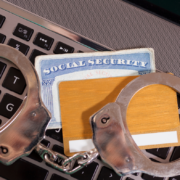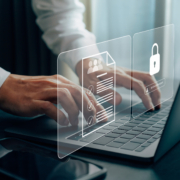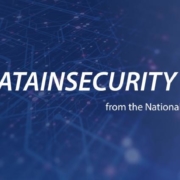National Consumers League adds Identity Theft Resource Center ‘Live-Chat’ to Fraud.org to help identity crime victims
December 13, 2022
Media contact: National Consumers League – Katie Brown, katie@nclnet.org, 202-823-8442
WASHINGTON, D.C. – Today, the National Consumers League (NCL), the nation’s oldest consumer advocacy organization, and the Identity Theft Resource Center® (ITRC), a nationally recognized nonprofit organization established to support victims of identity crime, are partnering up to help victims of identity crimes.
NCL integrated the ITRC’s live-chat function into fraud.org, a project of the NCL to give consumers the information they need to avoid becoming victims of telemarketing and internet fraud. The ITRC live-chat function on fraud.org will help assist victims of identity crimes related to data breaches, identity theft and identity fraud. It will also provide people with another resource during the holiday shopping season when there is an increased risk of identity crimes. According to Forbes, Adobe predicts a 2.5 percent growth in online sales from November 1-December 31, when identity criminals may look to take advantage of increased online activity.
The ITRC’s staff of identity advisors provides preventative information and customized plans to address all types of identity concerns. ITRC advisors assist victims live during business hours or through direct follow-up when contacted after hours and on weekends.
“NCL is always looking for new ways to reach consumers and better protect them from fraud,” said John Breyault, Vice President of Public Policy, Telecommunications, and Fraud at NCL. “By increasing the number of options that individuals can use to contact us, we can help a greater number of people. Thanks to ITRC, consumers with differing accessibility needs, levels of phone service, and communication preferences will find it easier to get in touch with a fraud expert.”
“The NCL and ITRC have a long history of mutual respect and shared commitment to victims of identity crimes,” said Eva Velasquez, President and CEO of the Identity Theft Resource Center. “Adding the NCL to the group of organizations and government agencies using live-chat to help victims continues our fight for small businesses and consumers to protect them from identity criminals. We believe giving more people direct access to our live identity experts – at no cost – will help prevent identity fraud and provide the support needed to recover from these crimes.”
NCL is the third organization the ITRC has partnered with to integrate the ITRC live-chat function on its website. Earlier in 2022, the ITRC embedded its chat into the San Diego District Attorney Office and New Mexico Office of the Attorney General websites.
Since the ITRC’s chat function was launched on fraud.org, three (3) percent of the ITRC’s total cases have come from its website. Implementing the ITRC’s live-chat function provides victims access to support when it is convenient and in a manner people often prefer – a live-chat rather than a phone call. ITRC advisors will:
- Ask what happened
- Ask a series of questions to help determine the scope of the problem
- Provide a victim or curious consumer with a detailed, custom plan of action steps to take
Currently, most ITRC cases from fraud.org involve scams, primarily lottery and prize scams (mostly about criminals pretending to be Publisher’s Clearing House representatives) and existing account takeover of a bank or credit card account.
The ITRC is committed to providing access to everyone seeking help. Read about the Center’s accessibility initiative here. Anyone can contact an advisor by visiting www.idtheftcenter.org or calling toll-free at 888.400.5530.
About the National Consumers League (NCL)
The National Consumers League, founded in 1899, is America’s pioneer consumer organization. Our mission is to protect and promote social and economic justice for consumers and workers in the United States and abroad. For more information, visit https://nclnet.org.
About the Identity Theft Resource Center
Founded in 1999, the Identity Theft Resource Center® (ITRC) is a national nonprofit organization established to empower and guide consumers, victims, business and government to minimize risk and mitigate the impact of identity compromise and crime. Through public and private support, the ITRC provides no-cost victim assistance and consumer education through its website live-chat idtheftcenter.org and toll-free phone number 888.400.5530. The ITRC also equips consumers and businesses with information about recent data breaches through its data breach tracking tool, notified. The ITRC offers help to specific populations, including the deaf/hard of hearing and blind/low vision communities.



















